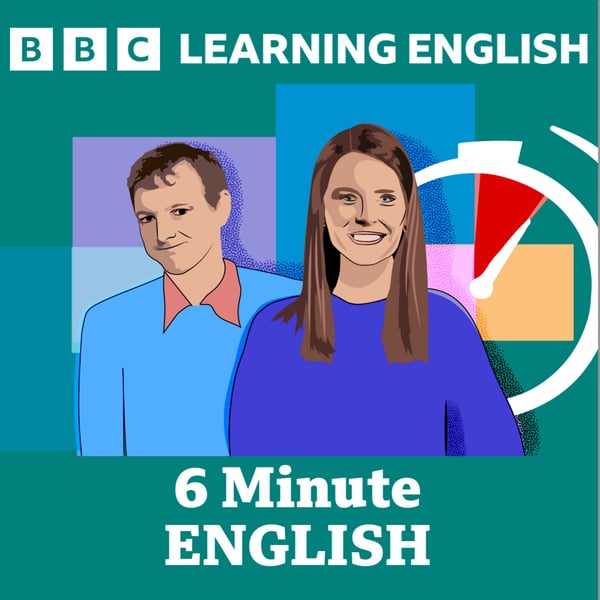Finding your way in space
6 Minute English
BBC
4.6 • 1.3K Ratings
🗓️ 20 May 2022
⏱️ 6 minutes
🧾️ Download transcript
Summary
Transcript
Click on a timestamp to play from that location
| 0:00.0 | This is a download from BBC Learning English. |
| 0:03.1 | To find out more, visit our website. |
| 0:13.5 | Hello, this is 6 Minute English from BBC Learning English. I'm Sam. |
| 0:17.6 | And I'm Rob. |
| 0:18.7 | How good are you at finding your way from A to B, Rob? |
| 0:22.7 | Can you read a map? |
| 0:23.9 | Oh, come on, Sam. This is the 21st century. |
| 0:27.1 | Everyone uses GPS and mobile phone apps to find their way around these days. |
| 0:31.8 | True, but before mobile phones were invented, |
| 0:34.8 | arriving at your destination wasn't so easy. |
| 0:38.2 | At sea, sailors used the stars and sun to navigate, |
| 0:42.4 | to work out which direction they wanted to travel. |
| 0:45.6 | And navigating on land was almost impossible with our to compass, |
| 0:50.3 | an instrument for finding directions that uses a magnetic needle |
| 0:54.8 | which moves to always point north. |
| 0:57.3 | But as we'll be hearing in this program, |
| 0:59.7 | navigation at sea is easy compared to finding your way in out of space. |
| 1:05.1 | After all, what's up and what's down for astronauts who are floating in zero gravity? |
| 1:10.5 | In space, is there a true north like here on Earth? |
| 1:13.7 | And how is everything complicated by the fact that all the stars and planets are moving? |
| 1:19.4 | Some big questions there, Rob, but first I have a question of my own. |
| 1:23.9 | You asked how astronauts know which way is up. |
... |
Please login to see the full transcript.
Disclaimer: The podcast and artwork embedded on this page are from BBC, and are the property of its owner and not affiliated with or endorsed by Tapesearch.
Generated transcripts are the property of BBC and are distributed freely under the Fair Use doctrine. Transcripts generated by Tapesearch are not guaranteed to be accurate.
Copyright © Tapesearch 2025.

